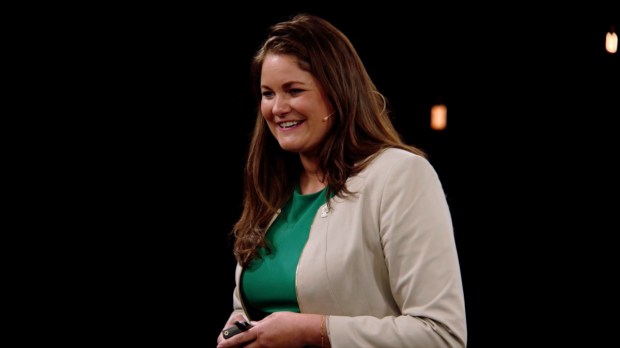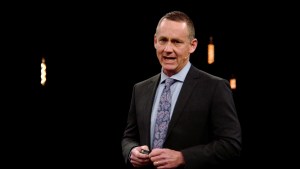Recently Rachel Harkins Ullmann was asked an unusual question: Is the future of faith female?
Ullmann is Executive Director of The GIVEN Institute, so she has a particular understanding of the role of women in today’s Church.
If you’re not familiar with The GIVEN Institute (GIVEN), it is a not-for-profit organization dedicated to activating the gifts of young adult women for the Catholic Church and the world.
There’s a powerful description of their mission on their website:
GIVEN inspires and equips the next generation of female leaders to “receive the gift that they are; realize the gifts they’ve been given; and respond with the gift that only they can give.”
So when she heard this question, it gave her pause. Just looking at the numbers and statistics, the answer seemed to be “No.”
But that’s not the whole story.
She tells all about it in her OSV Talk, How the Feminine Genius Heals a Hurting World. You can watch it here:
On the face of it, the future of faith is becoming less and less female. Ullmann said that one of the Church’s “greatest challenges” right now is the religious disaffiliation of women.
The Pew Research Center recently reported a 10-point increase in women who are religiously unaffiliated, Ullmann said.
“These numbers are striking, especially when we consider how women have been at the backbone of the life and mission of the Church.”
But Ullmann believes that this is only part of the story.
Women play a critical role in the future of the Church, especially when we understand what it means to be female, to have what the Church calls “the feminine genius.” She explains,
The feminine genius is characterized by four things: receptivity, sensitivity, generosity, and maternity. To me that sounds just like what the doctor ordered. If I could write a prescription to heal a hurting world, it would be those four things.
Ullmann points out vivid examples of women who have been saints and leaders in the Church throughout the centuries, explaining how countless women have changed the world and the Church for the better.
She shared a quotation from writer Kate O’Beirne, revealing how nuns have taken a leadership role throughout world history:
Long before NOW held its first organizational meeting, there were female role models who exemplified initiative, intelligence, and independence. America’s first large network of professional women was Catholic nuns. In the 1900s, they built and ran the country’s largest private school and hospital systems. These women were nurses, teachers — and CEOs.
And of course, Ullmann points us toward the ultimate example of feminine genius, Our Lady.
We should go to the top; we should look at the greatest Catholic female leader of all time, the woman who took the greatest risk, and that is the Virgin Mother. She accepted a mission that had never been done before and will never be done again. She is the true epitome of bringing forth a new creation to heal a hurting world, just like an entrepreneur, bearing the risks and then enjoying the reward.
Ullmann shows how greatly “the world needs what women are,” to quote St. Teresa Benedicta of the Cross.
“Is the future of faith female?” She asks. “It could be, if we learn to lead with our feminine hearts.”



